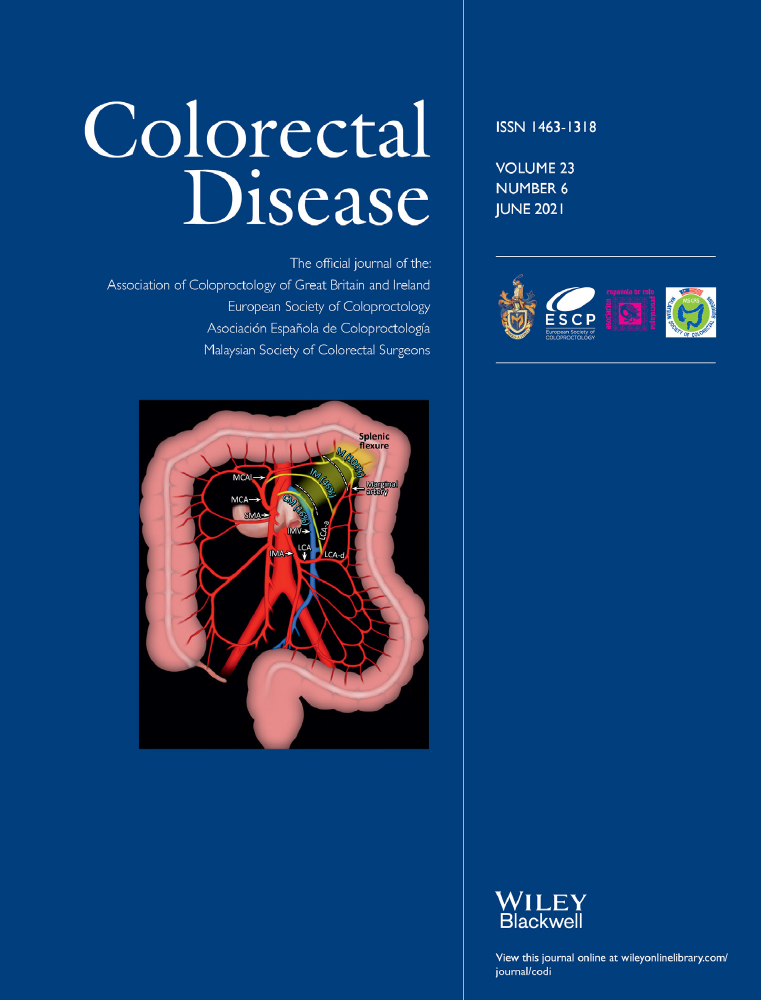Allogeneic expanded adipose-derived mesenchymal stem cell therapy for perianal fistulas in Crohn’s disease: A case series
Abstract
Aim
Even with optimal medical and surgical therapy, perianal fistulas in patients with Crohn's disease (CD) have low closure rates. As a new therapeutic option, administration of local mesenchymal stem cells (MSCs) has proved to be an innovative option after failure of treatment with immunosuppressive or immunomodulatory agents. The aim of this work is to share our first experience with MSC administration and demonstrate its efficacy, safety and feasibility outside a clinical trial.
Method
A total of 11 CD patients with complex perianal fistulas with nonactive or mildly active luminal disease were treated with local injection of 120 million allogeneic adipose-derived stem cells at a tertiary hospital between February 2019 and June 2020.
Results
The mean age of the 11 patients was 38.3 years, 72.7% were men and 27.2% were smokers. The mean duration of fistula manifestation was 7.8 years and, except for one patient (therapy with tacrolimus), all other patients had been treated with an antitumour necrosis factor agent without fistula healing in the last 6 months. After a mean follow-up time of 41.5 weeks, 72.7% (8/11) of patients had complete closure of their fistula and three patients failed MSC treatment. Complete fistula healing could be observed 4–6 weeks postoperatively in half of the patients, while 36.5% (4/11) of patients developed a perianal abscess which had to be drained. One patient experienced cytomegalovirus viraemia 2 weeks after MSC administration and one patient developed a testicular carcinoma 16 weeks after treatment.
Conclusion
This case series demonstrates that the efficacy and safety of darvadstrocel in the ADMIRE trial can be replicated outside a clinical trial. This new modality in the treatment of complex perianal fistulas appears to be a promising therapeutic option for a challenging patient population.
CONFLICT OF INTERESTS
PS: travel support from Falk, UCB and Pfizer and advisory board honorarium from Pfizer, Takeda and Janssen-Cilag. GR: consultancy to Abbvie, Augurix, BMS, Boehringer, Calypso, Celgene, FALK, Ferring, Fisher, Genentech, Gilead, Janssen, MSD, Novartis, Pfizer, Phadia, Roche, UCB, Takeda, Tillots, Vifor, Vital Solutions and Zeller; speaker's honoraria from Astra Zeneca, Abbvie, FALK, Janssen, MSD, Pfizer, Phadia, Takeda, Tillots, UCB, Vifor and Zeller; educational grants and research grants from Abbvie, Ardeypharm, Augurix, Calypso, FALK, Flamentera, MSD, Novartis, Pfizer, Roche, Takeda, Tillots, UCB and Zeller. LB: fees for consulting/advisory board from Abbvie, MSD, Vifor, Falk, Esocap, Calypso, Ferring, Pfizer, Shire, Takeda, Janssen, Ewopharma. DC-W: speaker's honoraria and advisory board honorarium from Takeda. MT: fees for consulting/advisory board from Takeda; speaker’s honoraria from Intuitive Surgical.
Open Research
DATA AVAILABILITY STATEMENT
The data that support the findings of this study are available on request from the corresponding author. The data are not publicly available due to privacy or ethical restrictions.




